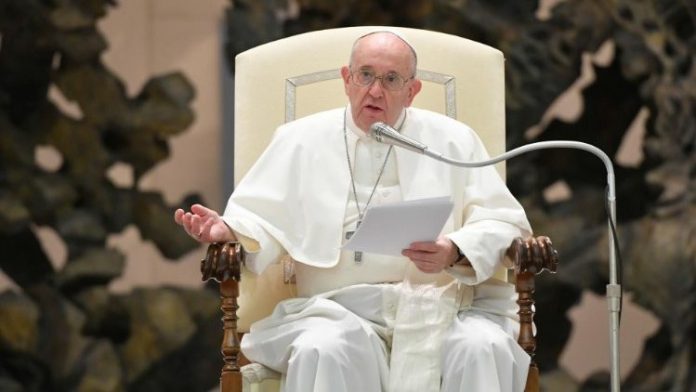The phoney war is over. Civil war has been launched within the Church by Pope Francis and his recent appointee Cardinal Victor Fernandez.
Many of the recent theological and political tremors that have emanated under the leadership of the Pope have produced a degree of incoherence and uncertainty. But the ambiguity is now over.
Secular culture has for many decades prioritised the sanctification of erotic and romantic relationships. It has additionally set them within an overall framework of what we might call “therapeutic ontology”. What this means in practice is that whatever makes people feel better is good. And since God is good, whatever makes us feel better is good. And God must therefore will it.
The problem is that this new philosophy and solipsistic religion is not Christianity. The old and well-worn jokey reply “Is the pope a Catholic?” has developed a dark shadow to it.
The Vatican has taken great care to cover its theological back by distancing the same-sex-blessing project from marriage. It intends to provide for itself a defence against the accusation that it is undermining marriage.
It has learnt well from the Protestant play book which has discovered that if you offer a “spirituality of the nice and reassuring” to people who present themselves as wounded and needy, few critics have the theological clarity of mind and courage of conviction to challenge it. Not being “nice” is the new definition of social and secular sin.
Liberal Protestantism has taken the line that if no one is allowed to ask indelicate questions about who is doing what with parts of their bodies and for what purpose, the fiction of “nice” can be maintained, and Fiducia Supplicans follows this strategy faithfully.
Little can be done to persuade progressives that the conservative or (dare we use the word) traditionalist concern for sin, particularly in terms of sexual self-expression, is not a form of “mental hate crime” or phobia.
But even less can be done to persuade faithful Catholics that the abandoning of the category of sin is not a heresy of the most serious and substantial kind. Which is why the publication of Fiducia Supplicans marks the beginning of a civil war.
Given how dire and unreconcilable the theological and philosophical conflict is at the moment, it is difficult to know what the political implications of this move are.
It may be that anxieties about the Pope Francis’ health drove his acolytes and appointees to decide that this was the most propitious moment to launch the coming conflict in the Church; one that will be resolved only through the appointment of a new pope on Francis’ death.
If Francis the 2nd is appointed, the Catholic Church becomes the largest liberal protestant denomination in the world. If Benedict the 17th is appointed, the Catholic Church may be saved.
There are two pragmatic arguments to be made that do not get much airing, however. One is that while at one end of the philosophical rope the old liberal Catholic elite is trying to make the Church more like the world, at the same time, something much darker and more sinister is happening at the other end of the rope.
The liberal theologians have made a disastrous category error. The rope that they massage and pull so lovingly has at the other end a noose that will be used to persecute Christians and drive them out of the public square and worse. The placation of same-sex erotic attraction at the hands of the liberal elite has become a weapon of Christian destruction at the hands of social activists.
There are Christians maintaining their belief in the Bible and the Magisterium who when asked about their definition of marriage and sexual ethics are then being turned into social outcasts. They experience losing jobs, being cancelled on social media, and in the case of one evangelical school teacher in Northern Ireland, being incarcerated in jail.
The second argument is well summarised by a recent remark to the Catholic Herald by bishop Schneider. No one will die for ambiguity and uncertainty. Liberal and progressive Christianity, whatever placation of secular sensibility it offers, makes no converts. And no one will sacrifice themselves for it. If the blood the martyrs is the seed of the Church, the ambiguity of the progressives is the death of the Church.
Catholics are being placed in an impossible and profoundly uncomfortable position by the Vatican; that of remaining good Catholics and knowing that they fuel the death of the Faith; or risking being bad Catholics in order to be faithful to Jesus and, by their sacrifice and witness, keeping the Church alive.
Who would choose to be a Catholic at a time like this?



